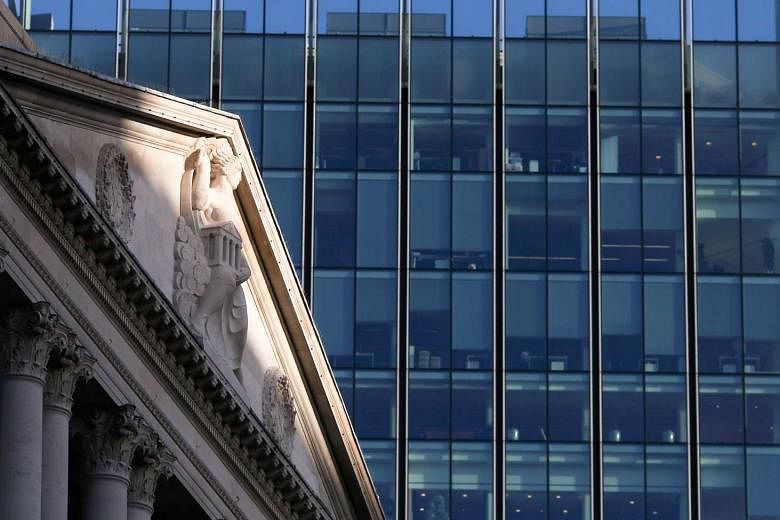LONDON (REUTERS) - The Bank of England's rate-setters focused on a renewed fall in global oil prices and slower wage growth at home as they voted 8-1 again to keep interest rates at their record low of 0.5 per cent.
The minutes of the Bank's latest policy meeting showed it was in no hurry to match an expected rate hike by the U.S. Federal Reserve next week as there was "no mechanical link" between the Bank's thinking and that of other central banks.
The BoE also said it expected the softer spending cuts announced last month by finance minister George Osborne would give a boost to growth next year.
Britain's economy has grown strongly for more than two years but inflation remains below zero and the BoE has kept rates at the level to which they were cut during the worst of the financial crisis nearly seven years ago.
Governor Mark Carney and other Monetary Policy Committee members said the "material news" in the month since they previously met was that the price of oil had "fallen markedly again", which raised the likelihood of inflation staying subdued.
They also highlighted a levelling off in wage growth in Britain, something which is central to the Bank's deliberations on when interest rates need to rise. "Despite lower unemployment, nominal pay growth appears to have flattened off recently," the minutes said.
The slowdown could be a blip in the numbers, or the result of people working fewer hours, they said.
It might also be a reflection of employers offering lower wage deals because of low inflation, something the Bank has said previously said could hurt Britain's recovery. "The Committee noted this effect was likely to reverse in due course, however, as inflation increased," the minutes said.
The Bank reiterated that it expected headline inflation to remain below 1 per cent until the second half of 2016.
When the Bank first made that short-term inflation forecast last month, it prompted investors to push back into late 2016 and 2017 their expectations of when the BoE was likely to finally start raising rates.
A top BoE official then warned investors against reading too much into the Bank's projections based on market estimates when it came to assessing the outlook for rates.
Economists polled by Reuters expect the Bank to start to raise interest rates in the second quarter of 2016.
As in previous meetings, Ian McCafferty, one of four external members on the nine-person MPC, voted to increase rates to 0.75 per cent.
All 52 economists in a Reuters poll had predicted the Bank would keep Bank Rate at 0.5 percent and an overwhelming majority had forecast another 8-1 vote.
BoE Governor Mark Carney has previously said that the decision on when to raise rates was likely to come into "sharper relief" around the turn of the year. But more recently, he has said the Bank will move when the time is right.
Carney has previously sent other messages that a rate hike might be on the way, only to be knocked off course by surprises such as the plunge in oil prices.
Another reason for the Bank to be cautious is Britain's planned referendum on its membership of the European Union.
Economists polled by Reuters said uncertainty over the vote's result, which could hurt business investment and growth, was the biggest risk to Britain's economy in 2016.
Prime Minister David Cameron has said he plans to hold the referendum before the end of 2017.
The BoE said on Thursday that a softening of spending cuts planned by finance minister Osborne could add 0.2 percentage points to growth next year.

